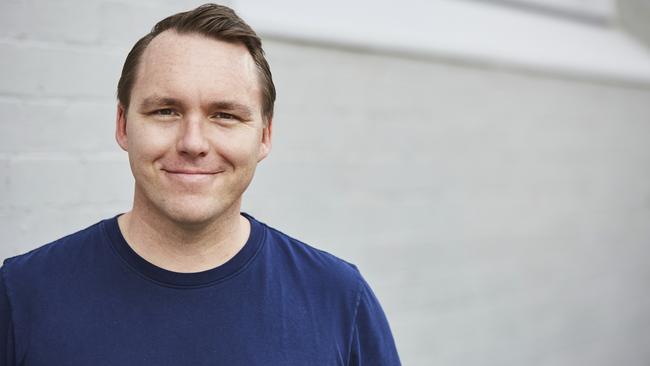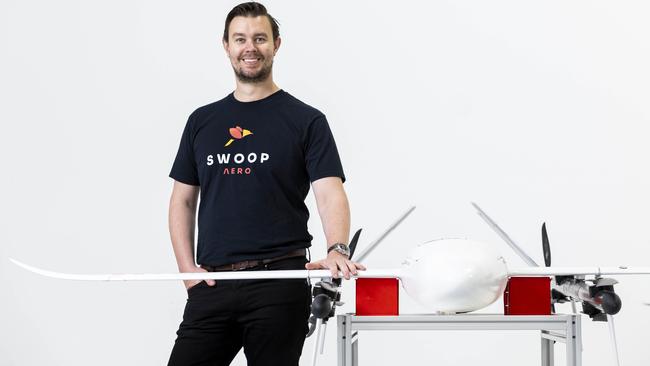Venture capital firms are failing their founders, Folklore founder Alister Coleman says
Amid widespread layoffs and pain for Australia’s start-up sector, many of the nation’s investors have gone missing in action.

The venture capital-founder support network is broken, according to Alister Coleman, the managing partner of VC firm Folklore, who says many of the nation’s investors are failing to support their start-ups amid the tech downturn, which is likely to lead to a growing number of failed companies.
Amid a streak of layoffs and pain for the local start-up sector, data from Cut Through Venture found nearly two-thirds of Australian founders don’t believe investors live up to their promise of non-capital support.
Mr Coleman said local VC firms were increasingly going missing at a time when their start-up founders needed them most.
“There is a an old adage in venture capital that you should aspire to invest in companies that are so good that they don’t need your support, and that the very best companies won’t need your help,” Mr Coleman said in an interview.
“The idea is find those companies, and you won’t even need to help them, they’ll be that good. But the problem is that in itself sets an ambition to not be as good as the companies you’re investing in, and what’s the sense of having an aspiration that punches low? And what does it say about your decision making after you’ve allocated capital, that you’re not prepared to step up and support those companies once you’ve made those investments?
“We’ve realised the best start-up founders actually ask the most questions, and draw on as much support as they can possibly get.”
Australia’s venture capital firms broadly didn’t want to be seen as stepping over their founders, Mr Coleman said, to the point where they were now disengaged and less inclined to support portfolio companies.

Valuation data is not available, but more than 60 per cent of investors surveyed by Cut Through Venture said they believed start-up valuations had declined by 30 per cent or more, forcing the start-ups to dial back growth.
“Some VCs certainly see the world through the lens of Darwinism, which is adapt or die,” Mr Coleman said. “But what the statistics show is there a significant disconnect between what VCs perceive to be important and what founders do, so I’d say things are broken.”
Folklore, which has invested in companies including Canopy Study, Mentorloop and Sphere, has spent years building up its community resources, including Campfire, an online platform featuring a private communications channel and templates and policies to help start-up founders.
“Our view is not that we have all the answers to everything. It just comes back to this question, why the hell would we allocate a lot of capital without giving up the best chance of success?” Mr Coleman said. “It seems odd to me that you would take a very risky asset class and make it even more risky by not engaging with those companies in a way that actually gives the founders an opportunity to win.
“And we need a level of consciousness around the fact that VCs are allocating other people’s capital, and therefore they should be doing their very best to improve the chances of success.”
Healthmatch, a start-up backed by Folklore and former prime minister Malcolm Turnbull, was one of the earliest tech firms forced to lay off staff amid deteriorating conditions, shedding 50 per cent of its workforce in June last year.
Its CEO, Manuri Gunawardena, said a close relationship with her investors helped her company survive through what was a trying period.
“A conversation like that happens at the board level, and it becomes a board decision looking at all the dynamics that are at play and how to keep the company going and keep the mission alive,” Ms Gunawardena said. “Last year was very turbulent for a lot of companies and there was a lot of uncertainty, but we had a lot of help too in navigating it, from people who had been through previous downturns and survived.
“For my generation of founders this is really the first downturn we’ve had to navigate, and now that we’re through it we can just focus on building, and stepping away from the capital markets and letting it do its thing while we just focus.”

Swoop Aero, a Melbourne-based drone delivery start-up led by CEO Eric Peck, is another company to receive investment from Folklore. Mr Peck said Silicon Valley and the US start-up ecosystem more broadly had a higher tolerance for failure, which was less accepted in Australia.
Mr Peck has managed to stave off layoffs but said he was hiring at a slower rate than previously.
“We need a greater focus here on what it looks like to work with founders through the tough times so they can get through them,” he said. “Companies fail, it’s OK, it’s part of the journey to build a unicorn company.
“Over the past year we’ve grown from around 60 staff to 100, and I’ve learned that I can’t do everything anymore, I have to delegate. And some of Folklore’s tools are not just for founders but for anyone within the company, so whether we’re talking about running sale or marketing, or company culture, we’ve been able to upskill and that’s helped me spread the load.”





To join the conversation, please log in. Don't have an account? Register
Join the conversation, you are commenting as Logout